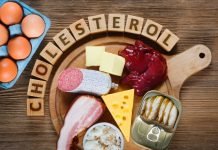
Aside from the obvious benefits of a healthy diet, there are certain foods that can help boost your fertility when you’re trying to have a baby.
There is no magic formula for boosting your chances of conceiving, but a healthy and balanced diet is always a good start.
If you’re looking to increase your chances of becoming pregnant naturally, or with the help of assisted reproduction services like IVF, these foods can all play their part in helping you achieve that happy ending.
Whether you’re trying to get pregnant or simply improve your general health, optimizing your diet with the right nutrients is essential.
In this post, we take a look at some of the top fertility-boosting foods and why they are so beneficial for men trying to have children, as well as those who just want to stay healthy in general.
Eggs
Eggs are one of the best foods for boosting your fertility, especially if you are trying to conceive with a woman who is older. In particular, the yolk is rich in vitamins that help boost fertility in both men and women.
The B vitamins found in eggs help to boost your energy levels and increase blood flow, which is essential for improving the quality and quantity of sperm. Vitamin B6 in particular helps to improve sperm motility and movement, which is essential in getting the little swimmers to the finish line.
Eggs are also a great source of protein, which helps your body build and repair muscles. This is especially important if you are physically active, as it can help reduce the risk of injury.
The yolk is also rich in iron, which is essential for men looking to increase their fertility. Iron helps to improve your blood flow and oxygen levels, which is important for overall health but can also affect your sperm quality.
Dark Leafy Greens
We’re always told to eat our greens, but when you’re trying to get pregnant, dark leafy greens like spinach and Swiss chard are essential.
They are packed with folic acid, which is essential for both men and women looking to conceive. Folic acid is essential for the healthy development of the fetus, especially during the first three months of pregnancy when the baby’s neural tube is developing.
Folic acid is also important for your general health, as it helps with blood flow, mood and fighting off infections. When you are trying to get pregnant, folic acid can also help to improve your libido, which is great if you’re having trouble with sexual dysfunction.
What’s more, dark leafy greens are rich in iron, which is important for overall health and can also help to increase your sperm count.
Beans
Beans are often overlooked as a source of fertility-boosting nutrients. They are packed with protein and fiber, which is essential for your general health and can also boost your fertility.
Beans are one of the best sources of plant-based protein and can be a great alternative to meat, eggs and milk. Protein is essential for building and repairing muscle.
It is also important for increasing your sex drive and boosting your libido, which is important if you are having problems with impotence or low sperm quality.
Fiber is important for keeping you regular and healthy. It can also help to boost your sperm count, thanks to its ability to clean out your digestive system.
When your digestive system is healthy, it is easier for sperm to travel and reach your partner’s egg for fertilization.
Lean Meats and Fish
Protein and iron are also found in lean meats like fish and chicken, so they can also help to boost your fertility.
Lean proteins are important for building muscle and are often recommended for men who are trying to build muscle. But they are also important for boosting your sperm health and quality.
Iron, like that found in beans, is essential for building your muscles and improving your sperm quality. What’s more, lean meats and fish are rich in zinc, which is important for boosting your fertility.
Zinc is necessary for sperm production, and is also used to regulate your testosterone levels. Low levels of zinc can lead to impotence, or difficulty in getting or keeping an erection, which can make it harder to conceive.
Nuts and Seeds
Nuts and seeds are a rich source of vitamin E, magnesium and zinc, all of which are important for boosting your fertility.
Vitamin E is a powerful antioxidant and can be helpful in protecting sperm from free radicals. It can also help to regulate your hormone levels, which is important for overall health and fertility.
Magnesium is important for energy metabolism and can also reduce the risk of insulin resistance.
Zinc is necessary for boosting your testosterone levels and regulating your hormone levels.
These are just some of the foods that are known to help boost male fertility. There are many more, including green tea and dark chocolate, which can also help to improve your general health.
Final Words
Fertile soil needs adequate amounts of vitamins and minerals, in particular B vitamins, iron, zinc and manganese. These are minerals your body needs in order to reproduce.
The best way to obtain them is by eating whole foods such as whole grains, legumes, nuts, seeds and dark green leafy vegetables, which naturally contain a high amount of these nutrients.
You can also find B vitamins in some of these foods as well as certain types of supplements. It is also important to consume enough water, which helps to flush out toxins and maintain good health.
On the other hand, poor soil can lower fertility in both men and women. It’s important to maintain your diet with plenty of fruits and vegetables, which provide lots of antioxidants and vitamins in their natural forms.
These foods will help boost the fertility of your whole body as well as your sperm and eggs.
Now that you know the foods that can boost your fertility and make it easier for your partner to conceive, you may be wondering which foods are best for conceiving. The truth is that there is no one-size-fits-all answer to this question.
The best foods for boosting your fertility will depend on your individual needs. Some people have fertility problems and need to pay attention to specific nutrients in their diet, while others are trying to get pregnant and can take a more general approach.




